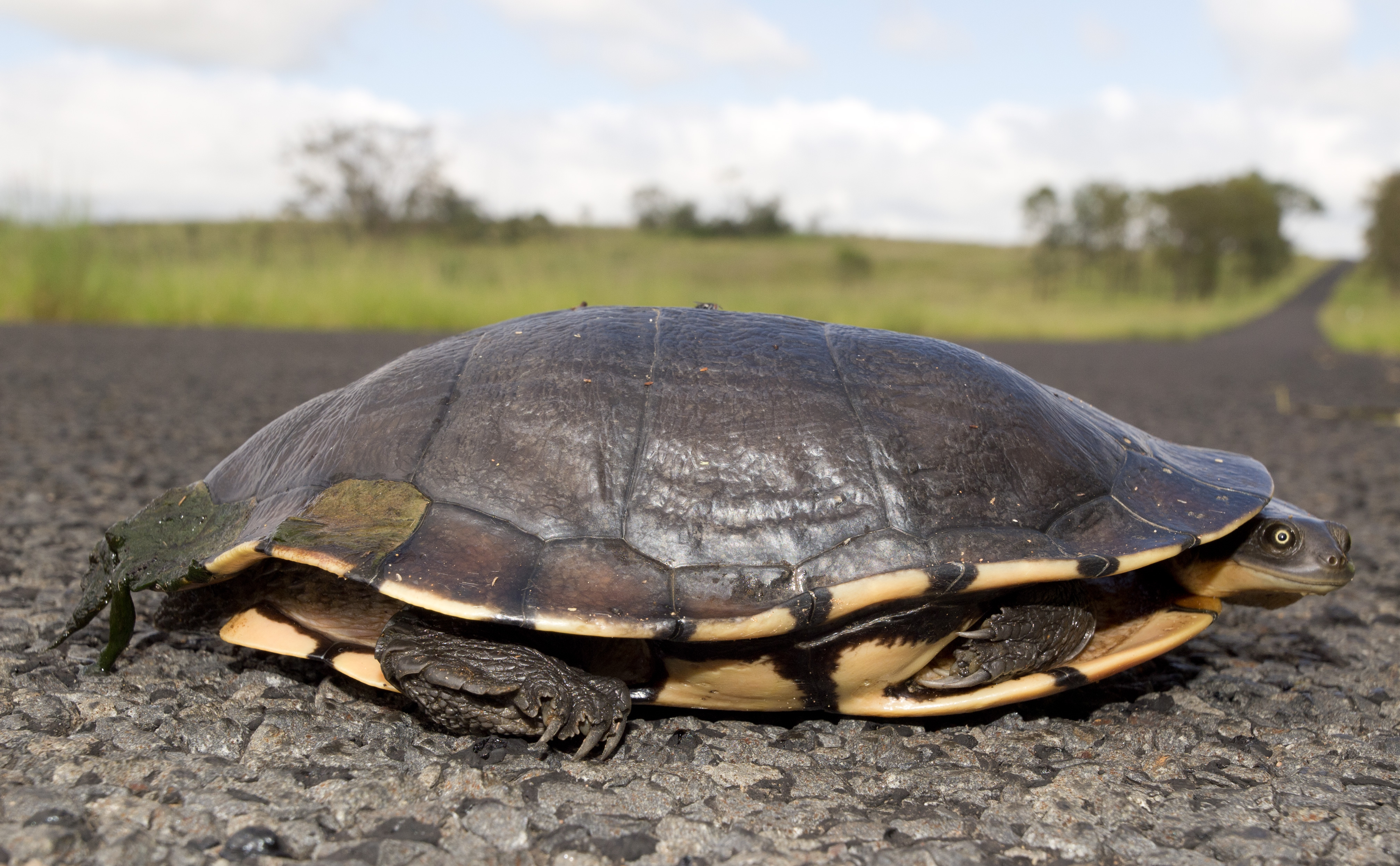So yesterday the boy and I spent the majority of the day watching Disney movies. He particularly likes Cars, and I certainly don't mind watching with him. But eventually, enough is enough. Seeing as I couldn't bear to spend another day lounging on the couch, particularly when the weather is as lovely as I could ask for (and might not be this beautiful again until fall) I decided we ought to go out for a stroll in one of our local parks.
You would think this would be a great idea...
And as it turned out, it was! The walk in the park was wonderful, and it is not at all the point of this story. The point is what happened on the way there.
As I was driving down the curvy road to the park I noticed a turtle ahead of me in the middle of my lane. I did the only thing I could think of: I stopped, got out and helped the little fellow several feet into the grass. Hopefully he had the good sense to stay there.
The experience was not what I would have expected. First of all, once the turtle noticed my presence, he was quite eager to move himself along under his own power. And he wasn't as slow about it as I would have thought, either. He bustled--as much as a turtle can bustle--to get himself away from me.
But after a moment I realized he was drifting a little too much in the wrong direction, and I attempted to steer him the other way by moving my hand into his path to discourage him. Apparently this was too much for the little guy. He stopped and pulled himself tightly into his shell.
So there I was with little other choice but to pick him up myself and carry him over to the grass. And suddenly I realized... I wasn't entirely sure I was comfortable doing so. What sort of turtle was he anyway? Would he bite my hand if I brought it too close? And how close was too close? Just how long was his neck exactly, and could he reach my fingers if they were on his back?
But despite my doubts, I mustered up the courage and picked him up, keeping my fingers as far back as I could while still maintaining a decent grip. He remained tightly in his shell, and a few seconds later he was safely in the grass.
There are two things I took away from this experience. First: the unfamiliar can be unexpectedly scary. I didn't know until I bent down to grab the turtle that I would feel a bit of trepidation in doing so. Even though I grew up in a very rural environment, there are a lot of nature-type things I've never done before, and first experiences with nature can be intimidating sometimes.
[Once when I was a very little girl, an opossum showed up at the sliding glass doors of my house. My mom and dad called me over to come see it, but I had no interest whatsoever. I didn't know what an opossum was! How did I know it wasn't going to eat me? For all I knew this could be some intelligent boogeyman creature that could break through glass and gobble me up.]
Books can be that way too--writing the unfamiliar can be scary. We can have a really exciting idea, but when we go to write it down, we suddenly realize we're a little bit nervous about writing what we don't know. What if it doesn't turn out the way we imagine? What if the end result is terrible and people laugh at us? What if we get it all wrong because we simply haven't had the right experiences?
That brings me to the second point: some things are really hard to get right if you've never experienced them yourself. If I had decided to write a story about a turtle rescue before this morning, I may have been able to write a relatively convincing scene, but I wouldn't have had the same details that I do now. I wouldn't know how quickly the turtle would try to escape or how I would feel about having to pick it up. Those are the sorts of details that add authenticity to a story.
So where am I going with this?
Well, I've been working on a book for a while now about magical worlds and the people responsible for keeping them nice and tidy and safe. (Spoiler: they don't always succeed.) I would very much like for one of the characters to be a bi-racial girl (with a white mother and a Kenyan-American father). I feel that a) girls like her need more representation in novels, and particularly in fantasy and b) her background could be a big asset to the story.
The problem for me, of course, is that I don't have the relevant experience. Because of that, I'm looking for a few expert readers--people who have the experiences I lack and can comment on aspects of the character's background that I wouldn't think of myself. So! If that sounds like you and you love to read and would be willing to help me make this character feel authentic, please contact me! You can reach me at audrey (at) alockwoodbooks (dot) com.
And if you don't have the background I need but still want to help, please share.
Many thanks to all of you!

